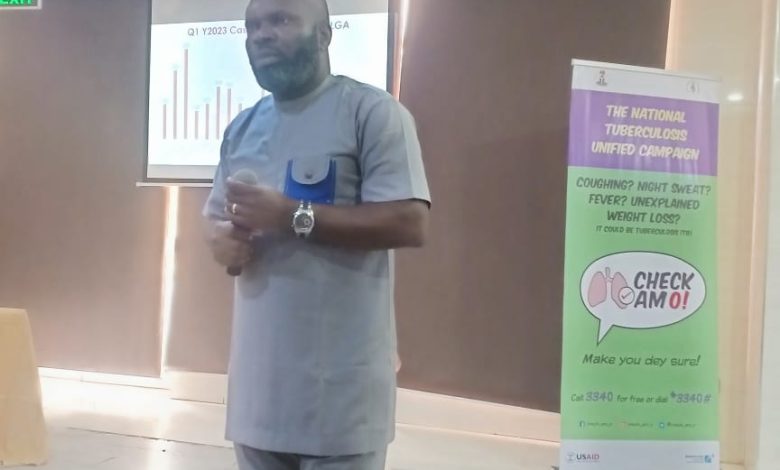
By Julie Ekong
Ignorance, Myths and Misconceptions have been identified as some of the reasons for the of Tuberculosis in the country.
While some say it is spiritual and therefore seek solution at worship centres, others believe it will go away with the use of medication for common cough not minding the duration of the cough.
These Medical experts say are dangerous as cough that lasts for more than two weeks should not be treated with levity as it could be Tuberculosis.
At a training put together by the Institute of Human Virology (IHVN) in collaboration with Breakthrough Action-Nigeria, BA-N for Health Editors in Lagos, the experts identified, overcrowding, dirty environment, poverty, smoking and non – charllant attitude of the people to health issues, as some of the reasons for the spread.
The Senior Programme Officer II TB/RCCE, USAID Breakthrough Action-Nigeria, Dr, Joseph Edor, who stressed that, the symptoms of TB are night sweats, coughing for more than two weeks, weight loss, fever, and Hemoptysis, blood in cough, warned against non disclosure of such health challenge.
Dr Edor who expressed dismay that an untreated case of TB could infect an average of 10 to 15 people in a year, advocated maintaining good cough etiquette, avoid spitting indiscriminately, and ensure that children be put on TB preventive treatments TPT.
“Way forward is search for active cases in communities “house to house TB case finding during community outreaches, among the vulnerable and Symptomatic screening of all Out Patient Department attendees for TB. Increase access to diagnostic examinations and Contact tracing of TB patients.
Symptomatic screening of children at maternal neonatal child health clinics and increased awareness creation “.
” TB drugs are not what you take for life, but you must be consistent with it so there will not be resistant strain. The good thing is, you can not transmit it after the first two weeks,of being on drugs” Edor said.
On his part, the Deputy Director & Programme Manager, Lagos State Tuberculosis, Leprosy, and Buruli Ulcer Control Programme, Dr Olusola Sokoya, noted that TB is an air borne disease caused by mycobacterium tuberculosis.
He described TB as one of the devastating diseases that affects people’s health in the country and the world at large.
“TB is a preventable and curable disease such that once diagnosed and confirmed to have TB, free treatment starts immediately at general hospitals, some public primary health care centers, and some private hospitals.” adding that Lagos state started the TB intervention programme 20 years ago and the state contributes 11% of the National TB burden ” – Dr Sokoya.
Dr Sokoya appealed to the media to sensitize members of the public to get tested and if positive, commence treatment immediately for TB, as there are a lot of yet-to-be-identified cases of TB in the country.
Speaking on childhood tuberculosis, the Lagos State Team Lead USAID IHVN TB LON 3 Project, Dr Babajide Kadiri, described TB in children under 15 years as a public health challenge because it represents recent transmission from an infectious adults.
Dr Kadiri noted that the problem with childhood TB control are lack of understanding of the issues around childhood TB so awareness are not created.
Others are, low index of suspicion for child TB by health providers , low funding for childhood TB control and poor health-seeking behaviour as well as stigma and discrimination.
According to Dr. Kadiri, “adults and children should go for TB treatment, it is free and the disease is curable. Society should not stigmatize against people living with TB because once a person with TB is discriminated against, it becomes more difficult for the person to take action in the area of disclosure or treatment.” ###
Discover more from Radio Nigeria Lagos
Subscribe to get the latest posts to your email.




